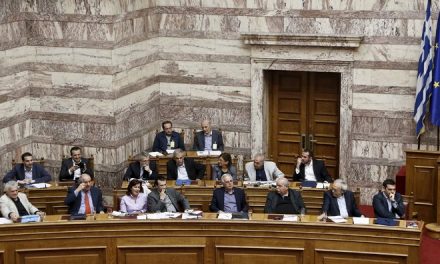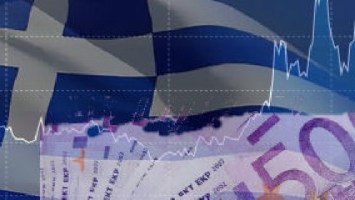By Nektaria Stamouli, WSJ
Greece’s economy expanded for a fourth straight quarter in the last three months of 2017, but at a slower pace, according to figures published Monday.
Gross domestic product increased by 0.1% in the October-to-December period, compared with an upwardly revised 0.4% growth in the third quarter, according to data from Greece’s statistics service Elstat.
However, the first estimate of the seasonally adjusted data shows a 1.4% rise in the economy, compared with a 1.6% estimate by the European Commission and Greece’s budget. On an annual basis, the Greek GDP expanded by 1.9% in the fourth quarter of the year.
“Gross-fixed capital formation has been the main driver of economic performance, while private consumption remained vulnerable, exemplifying the still weak state of Greek households balance sheets,” said Nikos Magginas, senior economist at National Bank of Greece. “The positive carry to GDP growth in 2018 is estimated at 0.6%, the strongest since 2007,” he said.
The Commission sees the economy expanding further, by 2.5% in 2018 and 2019.
Since entering recession in 2008, Greek GDP has shrunk by more than a quarter amid austerity measures imposed by international creditors after 2010, while unemployment has reached nearly 28% of the workforce.
The country is still in its third bailout program in a row, which ends this August, and the country has sought to convince its creditors that it is finally able to stand on its own feet.
“Greece cannot continue in a program forever,” said Declan Costello, head of the European Commission’s mission in Greece, at an economic forum in Delphi on Sunday.
Discussions on the country’s fourth and final review began last week in Athens, and the Greek government and its creditors will focus on final reforms the country needs to implement and the surveillance framework the country will need after the end of the bailout era.
Bank of Greece Governor Yannis Stournaras said the country would need a precautionary credit line from Europeans after August to maintain investor confidence, which the Greek government has been reluctant to request.
According to Klaus Regling, head of eurozone’s bailout fund, it is “too early,” do decide on a precautionary credit line, which “does not seem to be necessary” given current market conditions.
Greece would need to “formulate a request, and for the time being Greece has made it clear that it has no intention to do so,” he said.



















